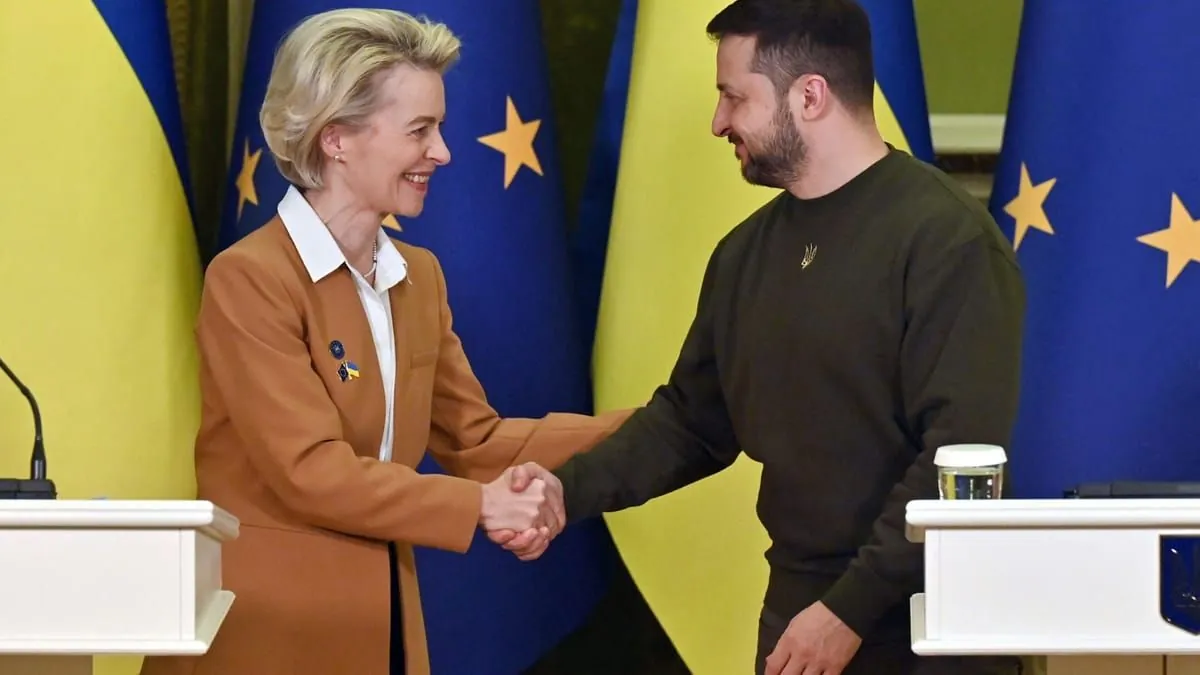Ursula von der Leyen, President of the European Commission, has arrived in Kyiv to address Ukraine's critical energy infrastructure challenges. The visit comes as Ukraine prepares for a harsh winter, with its power grid severely damaged by ongoing Russian attacks.
Ukraine, the largest country entirely within Europe by land area, is facing significant energy hurdles. Approximately half of its energy infrastructure has been compromised during the conflict with Russia, which began about 2 years and 7 months ago. The country's power system, originally designed as part of the larger Soviet network, is now struggling to meet demand.
Von der Leyen emphasized the urgency of the situation, stating:
"Heating season starts in two weeks and Russia's relentless attacks on Ukraine's civilian energy infrastructure aims to inflict maximum damage. We will help Ukraine in its brave efforts to overcome this."
The EU's strategy focuses on decentralizing Ukraine's power grid to reduce vulnerability to attacks. This approach aligns with Ukraine's ongoing efforts to modernize its infrastructure and increase energy efficiency to meet EU standards. The European bloc has already provided over 10,000 generators and transformers, along with mobile gas turbines, to enhance the resilience of Ukraine's energy system.
Ukraine's energy sector heavily relies on nuclear power, which provides about half of its electricity. However, the country has been working on diversifying its energy sources and has significant potential for renewable energy, particularly in wind, solar, and biomass production from agricultural waste.
The EU aims to help supply around 25% of the 17 gigawatts of power that Ukraine is likely to need this winter. This assistance is crucial, as Ukraine's winter runs from late October through March, with January and February being the most challenging months.
In addition to energy support, the EU is providing incentives for Ukrainians to remain in the country. Since the war's onset, approximately 4 million people have fled Ukraine. The European Commission is offering short-term assistance for housing, employment, and education to stem this outflow.
The EU has announced an additional 160 million euros ($180 million) to fortify Ukraine's energy network. Interestingly, 100 million euros of this funding comes from interest earned on frozen Russian assets, with von der Leyen stating the intention to "make Russia pay for it through the revenue generated by their frozen assets."
During her visit, von der Leyen and Ukrainian President Volodymyr Zelenskyy will discuss economic support through G7-organized loans and assess Ukraine's progress towards EU membership. These talks are crucial for Ukraine's long-term stability and integration with European energy standards.
As Ukraine continues to face energy challenges, its vast natural gas reserves and potential for implementing smart grid technologies offer hope for future energy independence and efficiency. The country's energy strategy aims to achieve 25% renewable energy in its total energy mix by 2035, aligning with broader European goals for sustainable energy development.
